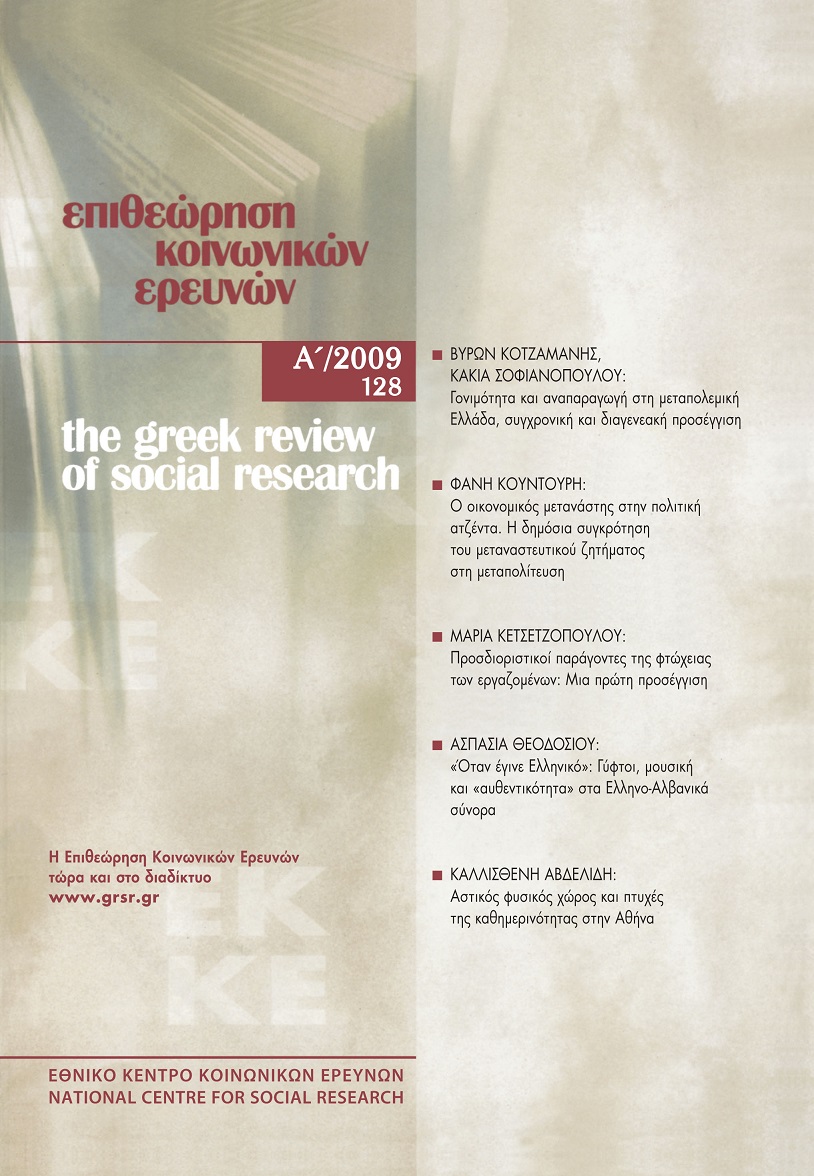« Όταν έγινε Ελληνικό»: γύφτοι, μουσική και «αυθεντικότητα» στα ελληνο-αλβανικά σύνορα
Abstract
Ποια η σημασία της «αυθεντικότητας» στο νεωτερικό κόσμο τον επικρατειακού κράτους και της εθνοτικής εθνικότητας; Ποιες οι συνέπειες της στην παραγωγή της ετερότητας; Με φόντο την ιστορική στιγμή της εγχάραξης των ελληνο-αλβανικών συνόρων και της εδραίωσης του ελληνικού έθνους-κράτους στην περιοχή, το άρθρο διερευνά τα παραπάνω ερωτήματα εστιάζοντας στην περίπτωση των Γύφτων του Παρακαλάμου. Υποστηρίζει ότι αυτοί αποτελούν την ορατή και επιτελούμενη αναπαράσταση του αμφίσημου και οριακού «άλλου», που ταυτόχρονα συμπεριλαμβάνεται και αποπέμπεται από το εθνικό φαντασιακό. Εμπεδωμένη στις συνεργειες «αυθεντικότητας», «παράδοσης» και «ουσιοκρατίας», η «διπλή οριακότητά» τους συγκροτείται στη βάση της ιστορικής τους σχέσης με τον τόπο των συνόρων. Το άρθρο επιλογικά θίγει το ζήτημα των συνεπειών της κατασκευής «αυθεντικών άλλων» στα σύγχρονα συμφραζόμενα
Article Details
- How to Cite
-
Θεοδοσίου Α. (2016). « Όταν έγινε Ελληνικό»: γύφτοι, μουσική και «αυθεντικότητα» στα ελληνο-αλβανικά σύνορα. The Greek Review of Social Research, 128, 115–142. https://doi.org/10.12681/grsr.9884
- Issue
- 2009: 128 A΄
- Section
- Articles

This work is licensed under a Creative Commons Attribution-NonCommercial 4.0 International License.
Authors who publish with this journal agree to the following terms:
- Authors retain copyright and grant the journal right of first publication with the work simultaneously licensed under a Creative Commons Attribution Non-Commercial License that allows others to share the work with an acknowledgement of the work's authorship and initial publication in this journal.
- Authors are able to enter into separate, additional contractual arrangements for the non-exclusive distribution of the journal's published version of the work (e.g. post it to an institutional repository or publish it in a book), with an acknowledgement of its initial publication in this journal.
- Authors are permitted and encouraged to post their work online (preferably in institutional repositories or on their website) prior to and during the submission process, as it can lead to productive exchanges, as well as earlier and greater citation of published work (See The Effect of Open Access).



